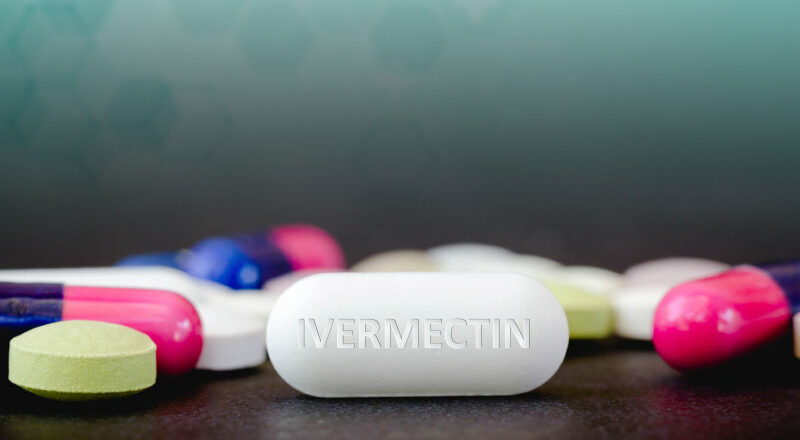Finally, we have closure on that horse drug ‘COVID cure’, ivermectin. Well, sort of
Examine, a free weekly newsletter covering science with a sceptical, evidence-based eye, is sent every Tuesday. You’re reading an excerpt – sign up to get the whole newsletter in your inbox.
Last week, David Henry, a professor of evidence-based practice at Bond University, sent me an email that triggered some old pandemic memories. The subject line was “Closure on ivermectin for COVID-19”.
Two new reputable studies show once and for all that ivermectin has no use as a COVID-19 treatment.Credit:iStock
He pointed to a new study, freshly published in JAMA (The Journal of the American Medical Association), that he reckoned hammered the final nail into the coffin of the horse dewormer that was briefly touted as a COVID-19 cure.
After a chat on the phone, we agreed Henry’s subject line was right – and wrong. The evidence is now overwhelming that ivermectin cannot treat COVID-19. But we don’t have closure.
“We can close it and settle the science. But we’ll get hate mail. And death threats,” Henry tells me. “Because that’s what this has become – cultish.”
Indeed. It was only a couple of weeks ago that Spectator Australia published an article headlined “Did the ivermectin ban cost lives?”
Meanwhile, America’s Frontline Critical Care Alliance, a group of influential and well-funded doctors who have done much to push the drug, are expanding on its potential. They now promote it to treat RSV (respiratory syncytial virus) and the flu!
Rather than closure, the story of ivermectin appears set to continue as a weird offshoot of the pandemic.
A quick history recap: ivermectin’s link to COVID-19 started in Australia – how’s that for local science having a global impact? – at Monash University, when a study in a petri dish showed high concentrations of the drug stopped the growth of the virus that causes COVID-19.
It was a reasonable study to do, but a long way from evidence that the drug worked in humans. Not that that mattered. People were desperate for a cure, and ivermectin was cheap and readily available.
Reports of the drug’s effect on COVID-19 jumped out of the lab and spread fast around the world, fanned along by a series of large human clinical trials that seemed to show huge benefits. Perhaps millions were tempted to try it for themselves.
Typically, medical research goes like this: a small study shows a drug has a huge effect. Larger, better studies follow, showing the drug has a small effect, or none at all.
Ivermectin reversed course: huge studies suddenly appeared showing massive effects on COVID-19.
“And then those studies turned out not have taken place,” says University of Wollongong epidemiologist Gideon Meyerowitz-Katz, who has done as much as anyone to investigate the question of whether there was scientific fraud relating to the drug.
The University of Liverpool’s Dr Andrew Hill led a meta-analysis that initially found, by combining the results of other trials, strong evidence ivermectin could treat COVID-19.
But when he looked more closely at the quality of the underlying studies – including one large study that looked entirely made-up – the evidence shifted to no effect.
These were not clever frauds. One suspicious paper, now retracted, appeared to have duplicated patients, some of whom were dead before the trial started.
Science operates on something of an honour system. Scientists will mercilessly debate results, but everyone operates under the impression the experiment actually happened. Ivermectin shattered that illusion.
“In 2020, I would not have expected there to be much fraud in pandemic research. I was quite naive,” says Meyerowitz-Katz. No longer. “Everyone assumes no one fakes anything, which means the people who do fake things get away with it most of the time.”
This left us in an ugly spot in the middle of the pandemic: we did not have good evidence the drug worked, but we also couldn’t prove it did not work, simply because the research was of such low quality.
Finally, with the publication of two studies, we now have the conclusive evidence we’ve lacked.
The TOGETHER trial randomised patients with COVID-19 and who were at risk of severe illness, giving them either ivermectin or a placebo.
To understand their results, you need to know a little about “credible intervals”. In clinical trials, it is difficult if not impossible to know a result (like how effective a drug is) with 100 per cent certainty. Instead, papers will often report a range of values within which the true value most likely lies.
Anything less than one means ivermectin helps with COVID-19, and anything more than one means it makes the patient worse. TOGETHER reported a credible interval of 0.70 to 1.16 – suggesting it is probably doing nothing at all.
We can now add another study called ACTIV, whose latest paper is just out in JAMA. This one enrolled patients who had COVID, giving them either a placebo or ivermectin (in both normal and high doses).
Looking at the high-dose study, time to recovery was 11 days in both groups: no difference. Of those on ivermectin, 5.7 per cent were hospitalised or died, compared to 6 per cent in the placebo group.
“They are rigorously designed and multi-centre trials,” says David Henry. “The researchers are independent – they don’t have a vested interest, they haven’t expressed strong prior views.
“We now know this drug does not work for COVID-19.”
Enjoyed this article? The Examine newsletter explains and analyses science with a rigorous focus on the evidence. Sign up to get it each week.
Most Viewed in National
From our partners
Source: Read Full Article


